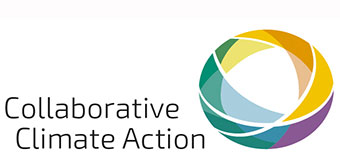Supporting local climate action through the National Climate Initiative
Event Summary
Experts presenting Collaborative Climate Action at the example of the German National Climate Initiative – GIZ event on 17 March 2020
In the event “Supporting local climate action through the German National Climate Initiative” Dr. Andrea Fischer-Hotzel from the German Institute for Local Affairs and Lizzi Sieck from the German Environment Agency shared insights into their work related to the implementation of the Germany National Climate Initiative (NCI). In addition, an emphasis was laid upon Collaborative Climate Action to being integral for the success of the NCI, which was launched in 2008.
Collaborative Climate Action, also referred to as vertical integration, deals with the enhanced coordination, communication and cooperation between all levels of government to develop and implement National Determined Contributions (NDCs) and long-term low greenhouse gas emissions development strategies (long-term climate strategies, short LTS). The event shed light on the concept and operationalisation of Collaborative Climate Action in the German context and thereby put the focus on institutional aspects and practical examples in the implementation of programmes under the NCI. The virtual event kicked off with a brief introduction to the functioning and structure of the NCI as well as the impact of the NCI’s programmes on national emission reductions. Delivering insights into the operationalisation of the Initiative, an input by Dr. Andrea Fischer-Hotzel followed in which she presented the work of the Service and Competence Center: Municipal Climate Action (SK:KK), an advisory and support unit for cities to facilitate local climate action projects notably of the NCI’s municipal climate programmes. Through convening and communicating with all three levels of government, the SK:KK is an essential cog in the big wheel of developing and implementing local climate programmes and climate action in Germany. Having worked as a climate manager herself prior to her position at the German Environment Agency, Lizzi Sieck then gave insights into the NCI’s funding schemes on climate managers as part of the Local Authorities Guideline, and on the scheme “Master Plan 100% Climate Protection”, through which municipalities receive funding for the development of ambitious long-term emissions reductions plans and strategies. It became evident that successful implementation of local climate action hinges on national and subnational governments working hand in hand and committing to Collaborative Climate Action – where institutions such as the SK:KK are key facilitators.
A recording of the full event is available below (please note that the Edge browser is not supported):

